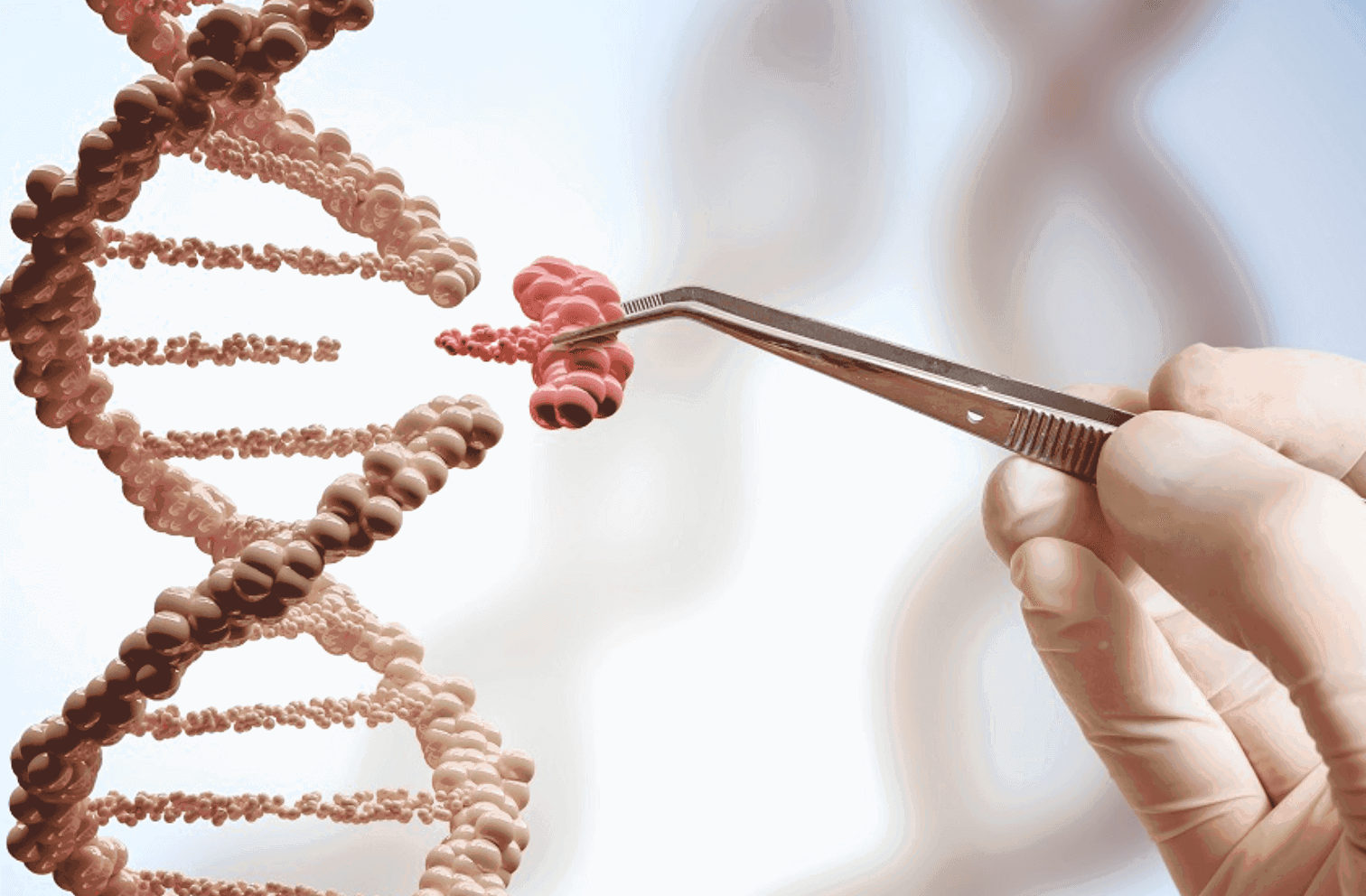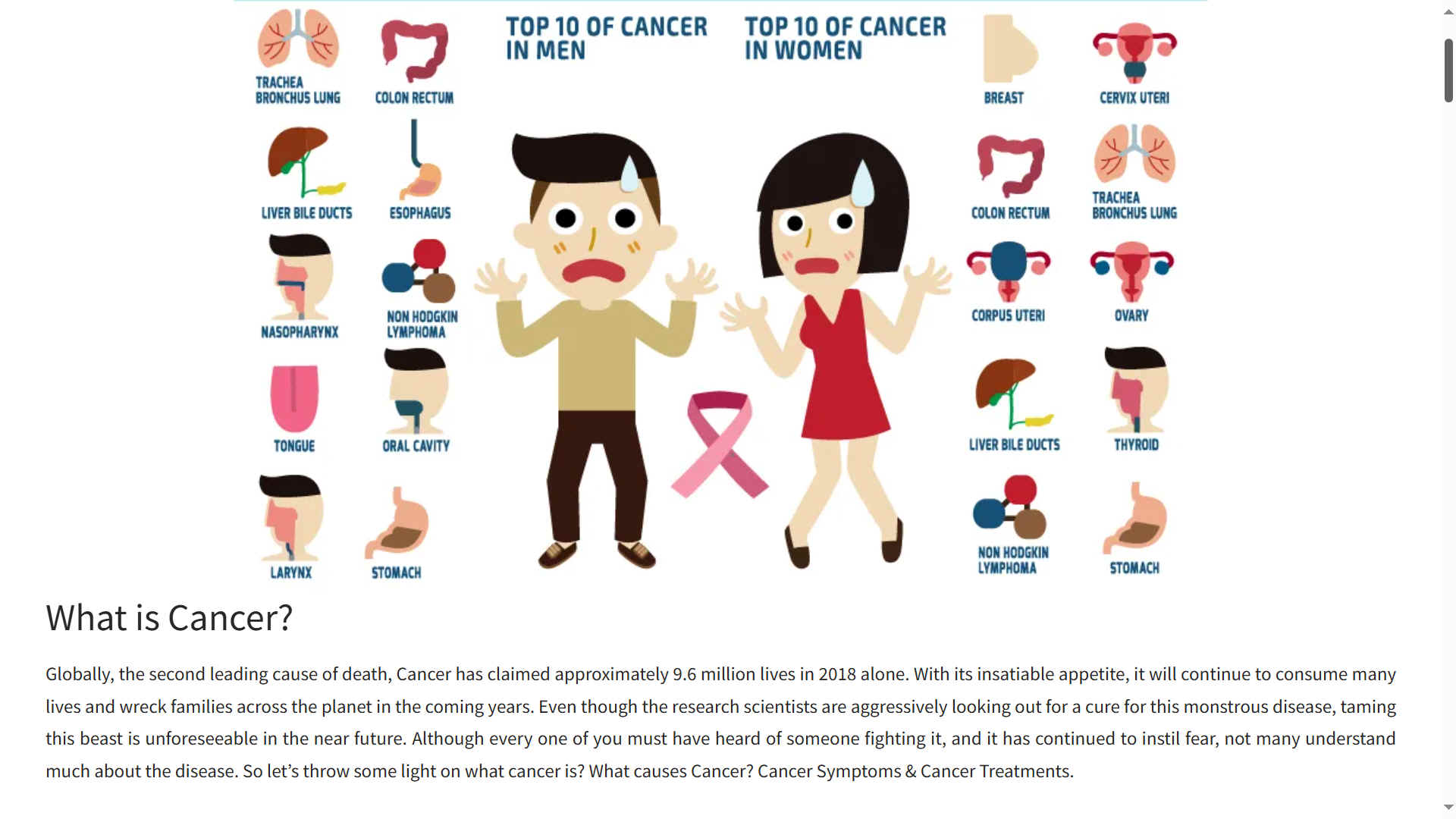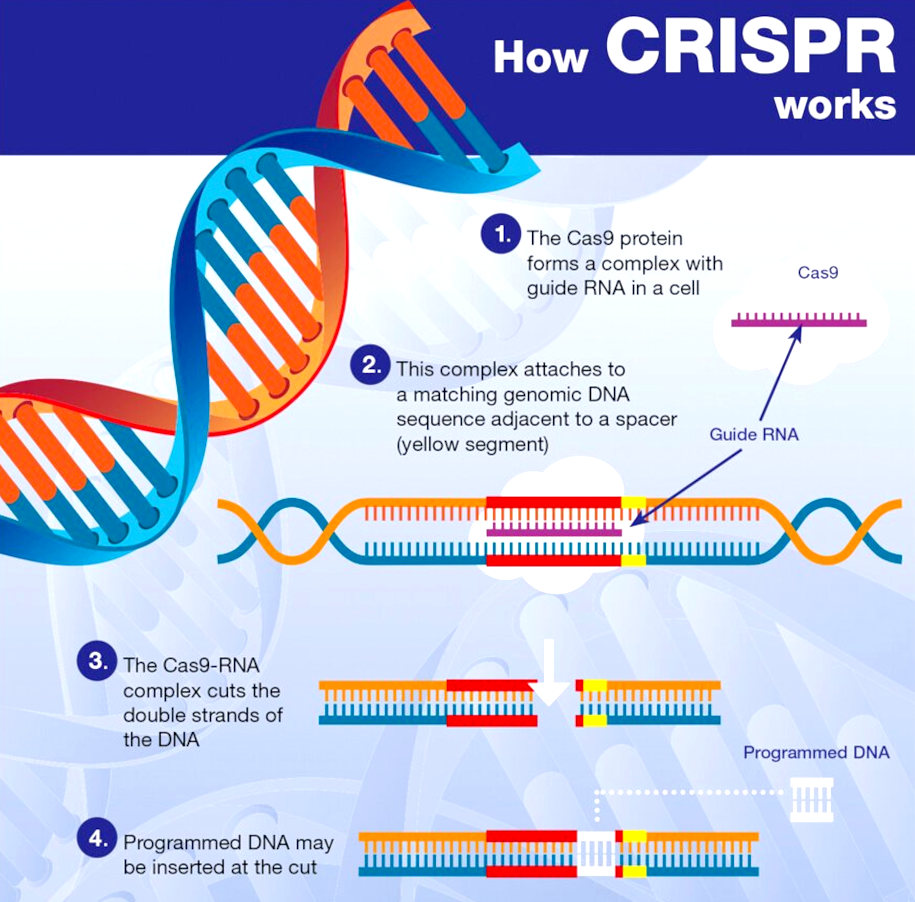|

Genetic
engineering at molecular level is one possible solution
The cure for cancer is a long way off, but could be
accelerated by the implant of a biological computer chip
that monitors body chemistry and functions, and shares that
information with AI algorithms to predict complications
ahead of abnormal uncontrolled genetic mutation.
The
medical profession appear not to be proactive enough in this
area of research as they fear jobs losses and losing control
of their client base. It seems they would rather ride the
millions of cancer
patients, focusing on conventional treatments, such as chemo
and radio therapies. And thus maintain their god like
status. When routine analysis of biological status, combined
with a database of known conditions and symptoms, could
diagnose patients using artificial intelligence very
efficiently. Eliminating the need for giving blood samples
and all the delays that sometimes leads to tumors and
spreading of cancerous cells to the rest of the body.
Such
autonomous monitoring could save $millions of taxes and
improve healthcare nationally, freeing up money for other
areas, such as necessary operations. Another area where
robotic machines are coming into their own, using laser
treatments with high precision.

Cancer is a large group of diseases with one thing in common: They all happen when normal cells become cancerous cells that multiply and spread.
Cancer is the second most common cause of death in most
developed countries. But fewer people are dying of cancer now than 20 years ago. Early detection and innovative treatments are curing cancer and helping people with cancer live longer. At the same time, medical researchers are identifying independent risk factors linked to developing cancer to help prevent people from developing cancer.
Normally, cells follow instructions provided by genes. Genes set down rules for cells to follow, such as when to start and stop growing. Cancerous cells ignore the rules that normal cells follow:
- Normal cells divide and multiply in a controlled manner. Cancerous cells multiply uncontrollably.
- Normal cells are programmed to die (apoptosis). Cancerous cells ignore those directions.
- Normal cells for solid organs stay put. All cancerous cells are able to move around.
- Normal cells donít grow as fast as cancerous cells.
Cancer starts when a gene or several genes mutate and create cancerous cells. These cells create cancer clusters, or tumors. Cancerous cells may break away from tumors, using your lymphatic system or bloodstream to travel to other areas of your body.
Healthcare providers call this metastasis.
For example, a tumor in your breast may spread to your lungs, making it hard for you to breathe. In some types of blood cancer, abnormal cells in your bone marrow make abnormal blood cells that multiply uncontrollably. Eventually, the abnormal cells crowd out normal blood cells.
CARCINOGENIC
SOUP
A
major cause of concern in the carcinogenic soup we have
created stemming from the burning of fossil
fuels and plastics
in packaging, that have now invaded almost every aspect of
modern living, including our oceans,
that could soon have more plastic in volume than fish before
2050, according to studies.
Towns
and cities are the most polluted with particulates from diesel
and petrol
engines
being a major cause of lung
cancer.
Cancer is a complicated disease. You can have cancer for years without developing symptoms. Other times, cancer may cause noticeable symptoms that get worse very quickly. Many cancer symptoms resemble other, less serious illnesses. Having certain symptoms doesnít mean you have cancer. In general, you should talk to a healthcare provider anytime thereís a change in your body that lasts for more than two weeks.
FIRST SYMPTOMS OF CANCER
Some common early cancer symptoms include:
- Unexplained weight loss.
- Chronic tiredness.
- Persistent pain.
- Fever that occurs mostly at night.
- Skin changes, particularly moles that change shape and size or new moles.
Left untreated, cancer may cause additional symptoms, including:
- Bruising or bleeding more easily.
- Lumps or bumps under your skin that donít go away.
- Difficulty breathing.
- Difficulty swallowing.
Cancer is a genetic disorder. It happens when genes that manage cell activity mutate and create abnormal cells that divide and multiply, eventually disrupting how your body works.
Medical researchers estimate 5% to 12% of all cancers are caused by inherited genetic mutations that you canít control.
More frequently, cancer happens as an acquired genetic mutation. Acquired genetic mutations happen over the course of your life. Medical researchers have identified several risk factors that increase your chance of developing cancer.
CANCER RISK FACTORS YOU CAN CONTROL
Smoking: Smoking cigarettes and cigars and using e-cigarettes increases your chance of developing lung, pancreatic, esophageal and oral cancer.
Diet: Eating high-fat or high-sugar foods can increase your risk for many types of cancer. Youíre also more vulnerable to disease if you donít get enough exercise.
Environment: Exposure to toxins in your environment ó such as asbestos, pesticides and radon ó can eventually lead to cancer.
Radiation exposure: Ultraviolet (UV) radiation from the sun significantly increases your risk of developing
skin
cancer. Over-exposure to radiation treatment can also be a risk factor.
Hormone therapy: Women and people AFAB taking hormone replacement therapy may have an increased risk for
breast cancer and endometrial cancer.
REDUCING THE RISK
You can reduce your risk by changing some of your lifestyle
choices.
If you smoke or use tobacco, try to stop. Ask a healthcare provider about smoking cessation programs that can help you quit tobacco.
Follow a diet plan thatís healthy for you. If you want help managing your weight, ask a healthcare provider about nutritional guidance and weight management programs.
Add exercise to your daily routine. Exercise may boost your immune system so it provides more protection against cancer.
Avoid toxins, including asbestos, radon and pesticides. Protect yourself against sun damage and have regular cancer screenings.

CRISPR genetic
engineering could be on the cards
REFERENCE
https://www.

|


